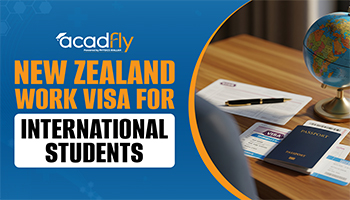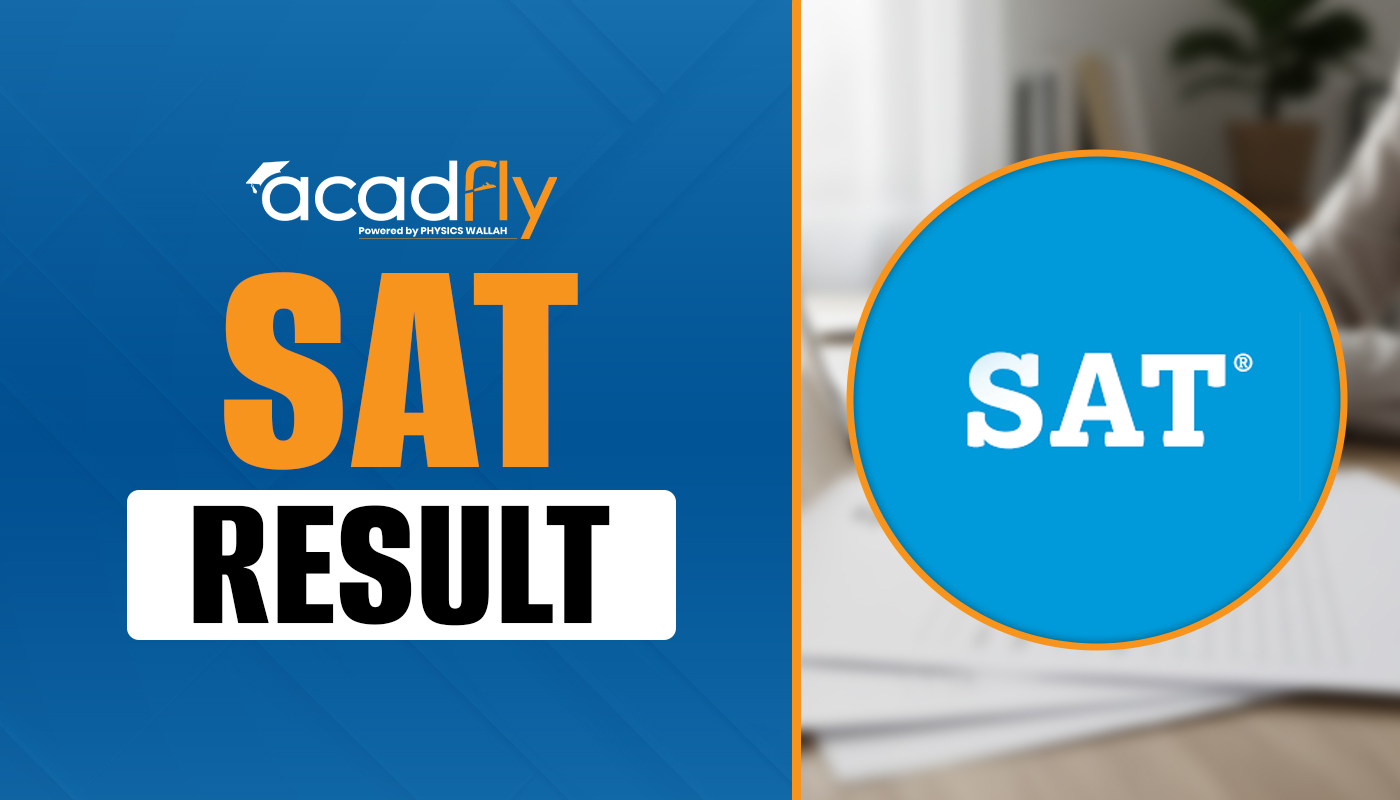
MBA in Australia offers globally recognized programs with practical learning, diverse specializations, and flexible study options. Top universities like Melbourne, UNSW, and Sydney provide strong industry links, scholarships, and post-study work visas. With fees ranging from AUD 40,000 to 90,000 and high job prospects, it's a smart choice for students.
MBA in Australia courses make a student personalized in training and very indicative for practical learning concerning global business trends. Australian MBA programs are reputed for molding leaders, ask communicators, and turning analytical decision-makers in today's competitive job market. Doing an MBA in Australia also ensures exposure to various cultures, strong connections to leading industries, and a spirited business network.
Several universities provide flexible need-based MBA programs, including full-time, part-time, and distance learning. Internships and real-life projects are other emphases of Australian MBAs, ensuring that students obtain relevant experience with various organizations. The supportive campus environments, scholarship opportunities, and post-study work visas work well for Indian students. Given this, an MBA from Australia will surely enhance one's career prospects and facilitate access to leadership roles in various industries worldwide.
MBA in Australia 2025
The International students going for an MBA in Australia is high. The education it puts forth is quality-interested, modern teaching, and practical-oriented. Most of the leading universities offer flexible options for study, like full-time, part-time, and online. Most Indian and international students receive scholarship grants and are given the benefit of post-study work visas. Jobs in various industries and attractive salaries are easily available for MBAs.
Here is a simple and easy guide to the important highlights of the MBA in Australia for 2025:
|
Overview of MBA in Australia 2025 |
|
|
Feature |
Details |
|
Average MBA Fees |
AUD 40,000 to AUD 90,000 total |
|
MBA Duration |
1 to 2 years full-time |
|
Work Experience Required |
2 to 5 years (usually) |
|
English Proficiency |
IELTS, TOEFL, or PTE with required scores |
|
Popular Specializations |
Finance, Marketing, IT, Human Resources |
|
Average Graduate Salary |
AUD 80,000 to AUD 130,000 per year |
|
Post-Study Work Opportunity |
Yes, work visa available after course |
|
Top Universities |
Melbourne Business School, UNSW, Sydney |
|
Application Deadlines |
Varies, generally between Nov 2024 - Jun 2025 |
Types of MBA in Australia
MBA programs in Australia come in different types to suit various student needs. Each type offers unique flexibility and learning modes. Each MBA type offers quality education but differs in schedules and flexibility. Choose the one that fits your career goals and lifestyle.
Full-Time MBA
Full-time MBA is a regular, on-campus program. Students attend classes every day and complete their degree in 1 to 2 years. It is ideal for those who can study without working.
Part-Time MBA
Part-time MBA lets students study while working. Classes usually happen in the evenings or on weekends. The program takes longer, often 2 to 3 years. It is good for professionals who want to learn without leaving their jobs.
Online MBA
An online MBA is done mostly over the internet. Students can study from anywhere, choose their own pace, and attend virtual classes. Duration varies from 1 to 3 years. It is flexible for busy people or those living far from campuses.
Executive MBA (EMBA)
EMBA is designed for managers and executives with work experience. It focuses on leadership, strategy, and advanced business skills. Classes combine weekend sessions and online learning. The course lasts about 1 to 2 years.
Accelerated MBA
Accelerated MBA is a fast-track course that finishes in less than 1 year. It is intensive and suits students who want to finish quickly. Usually, students must have a strong academic or work background.
Top 10 MBA Universities in Australia
Australian universities offer MBA programs that focus on practical learning, leadership, and global business skills. They attract students from many countries, including India. Australian universities combine modern teaching methods with strong industry connections, helping graduates find good jobs.
Top MBA universities provide flexible study options, support services, and internship opportunities. Choosing the right university depends on your career goals, budget, and preferred location.
|
University Name |
Location |
Average MBA Fees (AUD) |
Key Features |
|
University of Melbourne (Melbourne Business School) |
Melbourne |
89,000 |
Top-ranked, strong leadership focus |
|
University of New South Wales (UNSW) |
Sydney |
82,000 |
Research-led programs, global links |
|
University of Sydney |
Sydney |
80,000 |
Industry connections, flexible study |
|
Monash University |
Melbourne |
70,000 |
Innovation-driven, diverse courses |
|
Australian National University (ANU) |
Canberra |
65,000 |
Strong research, government ties |
|
University of Queensland (UQ) |
Brisbane |
65,000 |
Practical focus, strong alumni network |
|
University of Western Australia (UWA) |
Perth |
60,000 |
Leadership skills, integrated projects |
|
Macquarie University |
Sydney |
60,000 |
Industry collaborations, global outlook |
|
RMIT University |
Melbourne |
45,000 |
Affordable, large urban campus |
|
Queensland University of Technology (QUT) |
Brisbane |
50,000 |
Flexible learning, strong industry ties |
MBA Specializations in Australia
Australian MBA programs cover a wide range of specializations to match industry demands. Some popular areas include finance, marketing, IT, human resources, and entrepreneurship. Each specialization provides focused knowledge and skills to prepare students for leadership roles in specific sectors.
|
Specialization |
Description |
Job Roles Example |
|
Finance |
Focus on investment, banking, and risk management. |
Financial Analyst, Investment Banker |
|
Marketing |
Covers market research, branding, and digital marketing. |
Marketing Manager, Brand Strategist |
|
Human Resources |
Emphasizes recruiting, training, and employee management. |
HR Manager, Talent Acquisition Specialist |
|
Information Technology |
Combines business and technology management skills. |
IT Manager, Systems Analyst |
|
Entrepreneurship |
Prepares students to start and manage new businesses. |
Startup Founder, Business Consultant |
|
Operations Management |
Focus on supply chain and production efficiency. |
Operations Manager, Logistics Coordinator |
|
International Business |
Study global trade, cross-cultural management. |
Export Manager, International Consultant |
|
Healthcare Management |
Specialized skills for managing healthcare organizations. |
Hospital Administrator, Healthcare Consultant |
MBA Cost in Australia
MBA fees in Australia vary widely depending on the university and program type. Costs typically include tuition but exclude living expenses, insurance, and other fees. Indian and international students usually pay similar fees for MBA programs. The generic cost of a few universities are mentioned below
|
University / Program |
Tuition Fee Range (AUD) |
Duration (Years) |
Mode |
|
University of Melbourne (Melbourne Business School) |
85,000 – 90,000 |
1.5 – 2 |
Full-time, Part-time |
|
University of New South Wales (UNSW) |
80,000 – 85,000 |
1.5 – 2 |
Full-time, Part-time |
|
University of Sydney |
75,000 – 80,000 |
1.5 – 2 |
Full-time, Part-time |
|
Monash University |
65,000 – 70,000 |
1.5 – 2 |
Full-time, Part-time |
|
Australian National University (ANU) |
60,000 – 65,000 |
1.5 – 2 |
Full-time |
|
RMIT University |
40,000 – 50,000 |
1 – 2 |
Full-time, Online |
|
Queensland University of Technology (QUT) |
45,000 – 55,000 |
1.5 – 2 |
Full-time, Flexi |
Student Visa Cost for Australia
To pursue studies in Australia, one will require a student visa. The visa application fee is nearly AUD 630 (approximately INR 34,000). Health examination and biometrics might incur an extra fee. Variables affecting the expenses include the applicant's country and personal circumstances. For the latest and most accurate fee information, kindly check the official website of the Australian government.
MBA in Australia Admission Requirements
The admission process for an MBA in Australia is contingent upon several significant entry conditions. Primarily, you need a university or college-awarded bachelor's degree in any discipline, although some universities may look favorably on candidates with business-related backgrounds.
For MBA admission in Australia, most universities require:
-
A recognized bachelor's degree in any field.
-
Work experience of two to five years (some universities require this).
-
English language test scores, such as IELTS of a minimum of 6.5 or 7, or TOEFL.
-
Some universities require GMAT or GRE scores.
-
Collateral documents such as a CV, recommendation letters, and a statement of purpose.
-
An interview or video presentation may sometimes be required.
Also refer: Masters in Business Administration requirements
Work Permit after MBA in Australia.
Post-study work permission can be applied for after getting an MBA. It gives you extra working depth for 2 to 4 years, depending on available courses. This gives you a visa through which you can gain by little experience that enhances your job prospects. Working part-time during your studies is also permissible (maximum 40 hr, two weeks).
MBA in Australia- Scholarships
Different universities and organizations provide scholarships for MBA students. Full or part fees are covered through scholarships on the basis of merit (grades) or need-based criteria. Popular scholarships are the ones offered by reputed universities like Melbourne Business School and UNSW. The earlier you apply with a strong application, the better your chances are.
MBA Jobs and Salaries in Australia
Marketing, finance, consulting, IT, and management are common jobs taken by MBA graduates in Australia. Salaries offered in entry roles generally range from AUD 80,000 to AUD 130,000. The finest paying sectors include banking and technology. An MBA degree can lead to careers as a manager, business analyst, consultant, or entrepreneur.
Benefits of an MBA in Australia
As of 2025, the MBA in Australia is attracting students in business from the ranks of acceptable and career-oriented. The proper planning and punctual effort in submitting an application will lead to admission in some of the preferred programs. Outlined below are the benefits of an MBA in Australia.
-
Global recognition of the degree and skills.
-
Access to internships and industry projects.
-
Multicultural campus with student support.
-
Work while studying with part-time rules.
-
Chance to work in Australia after graduation
An MBA in Australia provides you with a worldwide education and good potential for a career while gaining international exposure. The opportunities of scholarships, flexible learning format, and strong alumni networks are provided to Indian and international students.
Good planning for the MBA journey, keeping in mind fees, university reputation, requirements, and career goals, will help you utilize the opportunity in your favor. Conclusively, being devoted to the right program prepares you for leadership across the globe.
MBA in Australia FAQs
What are the MBA requirements in Australia?
How much is MBA in Australia fees for Indian students?
What is the duration of an MBA in Australia?
Which are the top 10 MBA universities in Australia?
Is MBA in Australia suitable for international students?









